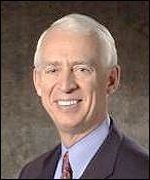Chapter 11 Has Unreported Consequences
 Chapter 11 of the US Bankruptcy Code affords "protection" to
the company whose application is accepted. Chapter 11 was designed
by politicians, to give companies that couldn't meet expenses, an
extended chance. Once under court protection, Chapter 11 companies
don't have the day-to-day freedom to make decisions the way they
did before they entered; but their creditors can't collect, either,
unless and until the judge says so.
Chapter 11 of the US Bankruptcy Code affords "protection" to
the company whose application is accepted. Chapter 11 was designed
by politicians, to give companies that couldn't meet expenses, an
extended chance. Once under court protection, Chapter 11 companies
don't have the day-to-day freedom to make decisions the way they
did before they entered; but their creditors can't collect, either,
unless and until the judge says so.
Employees get paid; creditors do not. That simple fact
identifies the political reality: Chapter 11 is a "jobs" program,
designed to curry favor with employees of companies that can't make
it in the harsh marketplace. The way it's usually presented,
Chapter 11 looks like a "second chance" for a struggling company.
It prevents "jobs from being lost." It "keeps creditors at bay,"
while the bankrupt company sees if it can "return a good portion of
the dollar to creditors, instead of just pennies."
Assuming those are all noble (if economically ignorant, and
economically unjust) ideals, what else happens, when a company
doesn't have to face the music? That part about keeping the company
afloat while it restructures itself sure sounds good; but Chapter
11 still (although not as much as in past decades) impacts company
image among consumers.
With revenues down, how is a Chapter 11 company supposed to make
it? The "protection" explains things: without having to pay
existing debts, including most interest, the company in Chapter 11,
even with significant loss of revenue, often has more operating
room than its non-bankrupt competition. "That's good," you say.
"The struggling company needs a competitive advantage."
Here's where the unintended consequences come into play.
 In an official press release yesterday, American
Airlines, under CEO Don Carty (right), noted that that, while
it's not yet publicly contemplating filing for Chapter 11, it faces
unfair competition from airlines that already are operating under
court protection. One particularly-telling sentence said the
unthinkable: "The company cited pricing actions by low-cost
and bankrupt carriers among the factors putting
'unrelenting pressure' on the company's financial situation." In
other words, as United and US Airways don't have to pay their
(prepetition) suppliers' debts and interest, American, operating in
the clear, does. United and US Airways thus have more room to cut
fares, making it possible to lure PAX away from American.
In an official press release yesterday, American
Airlines, under CEO Don Carty (right), noted that that, while
it's not yet publicly contemplating filing for Chapter 11, it faces
unfair competition from airlines that already are operating under
court protection. One particularly-telling sentence said the
unthinkable: "The company cited pricing actions by low-cost
and bankrupt carriers among the factors putting
'unrelenting pressure' on the company's financial situation." In
other words, as United and US Airways don't have to pay their
(prepetition) suppliers' debts and interest, American, operating in
the clear, does. United and US Airways thus have more room to cut
fares, making it possible to lure PAX away from American.
If United and US Airways were playing on a level field, American
thus points out, those airlines would be forced to pay their debts,
or go out of business. Since they are, momemtarily, "untouchable,"
American can't compete on price, all other things' equal. Thus, the
responsible competitor, American Airlines, may well be forced into
bankruptcy by the competitors that are being kept on court-ordered
life support.
What if everybody did it?
 Of course,
US Airways and United's suppliers' not getting paid their just
deserts will continue to have dire consequenses downstream.
Creditors, from Boeing, to airports and cities, to caterers, still
have to pay their bills -- except they now have to do it, without
the money the Chapter 11 airlines owed them. This puts additional
businesses at risk -- businesses that are most certainly
not competing with United, or with US Airways. If more and
more companies start feeling that their customer-companies are
headed for Chapter 11, the credit and cooperation among companies
will diminish, actually provoking more filings, as more companies
take advantage of the courts.
Of course,
US Airways and United's suppliers' not getting paid their just
deserts will continue to have dire consequenses downstream.
Creditors, from Boeing, to airports and cities, to caterers, still
have to pay their bills -- except they now have to do it, without
the money the Chapter 11 airlines owed them. This puts additional
businesses at risk -- businesses that are most certainly
not competing with United, or with US Airways. If more and
more companies start feeling that their customer-companies are
headed for Chapter 11, the credit and cooperation among companies
will diminish, actually provoking more filings, as more companies
take advantage of the courts.
It should be easy to see that, in the long run, Chapter 11
"protection" is not a good idea -- even for those workers whose
jobs are temporarily "saved." Politicians, though, will continue to
pander. Economists, with lower profiles, will continue to pull
their hair out...
 NTSB Final Report: Patriot Aircraft LLC CX1900A
NTSB Final Report: Patriot Aircraft LLC CX1900A Aero-News: Quote of the Day (12.06.25)
Aero-News: Quote of the Day (12.06.25) ANN's Daily Aero-Term (12.06.25): High Speed Taxiway
ANN's Daily Aero-Term (12.06.25): High Speed Taxiway ANN's Daily Aero-Linx (12.06.25)
ANN's Daily Aero-Linx (12.06.25) Airborne-NextGen 12.02.25: Honda eVTOL, Arctus High-Alt UAS, Samson Patent
Airborne-NextGen 12.02.25: Honda eVTOL, Arctus High-Alt UAS, Samson Patent





